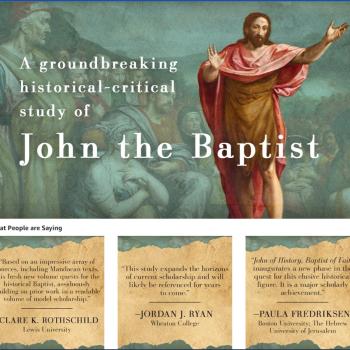Stanley Porter and Gordon Heath address a question in their recent book The Lost Gospel of Judas: Separating Fact from Fiction that is also addressed in the book by Jones I discussed in my last blog entry, the question (raised in particular by Bart Ehrman) of whether the views that became later ‘orthodox’ Christianity were in fact the ‘lucky winners’ among a number of diverse but equally early and equally valid viewpoints. When one puts it like that, it is relatively easy to show that later Gnosticism does not seem to reflect the views in our earliest texts.
But it would also be easy to oversimplify things. The Gospel of Thomas may incorporate an early Jewish-Christian source, and the Q source has also vanished. The early Jewish Christians had sources that have not made it down to us. Largely Gentile Christianity was not merely a ‘lucky winner’, since law-observant Jewish Christianity could not compete for numbers, but neither is it necessarily the movement that most closely resembled the beliefs and practices of the earliest followers of Jesus.
It is often observed that in later centuries, the Gnostics regularly claimed that their teaching had been passed on by an apostle, but secretly. The proto-orthodox could counter that they maintained the true, public teaching of the apostles. When it comes to claims to have a special perspective that was passed on secretly, our earliest such claim is found in the Gospel of Mark, our earliest surviving Gospel! Could it be that such claims, rather than being made only in later centuries by the Gnostics, were made from the outset? Did Gentile Christianity use this device to claim that their views were true to those of Jesus, only to have this weapon turned against them by the Gnostics?
When it comes to the Gospel of Judas, no one can seriously claim that that text really comes from Judas or takes us back to traditions earlier than the canonical Gospels. Nevertheless, our canonical source about Judas leave us asking the questions that this later work seeks to address. What really happened, and why? Our two accounts of Judas’ death disagree so significantly, that a historian could only conclude that either Matthew, or Luke, or both of them, were confused and uncertain about what actually happened. What we have in these sources were perhaps the rumors that circulated; about the reality, one can only speculate, and clearly people did, then as now.
















